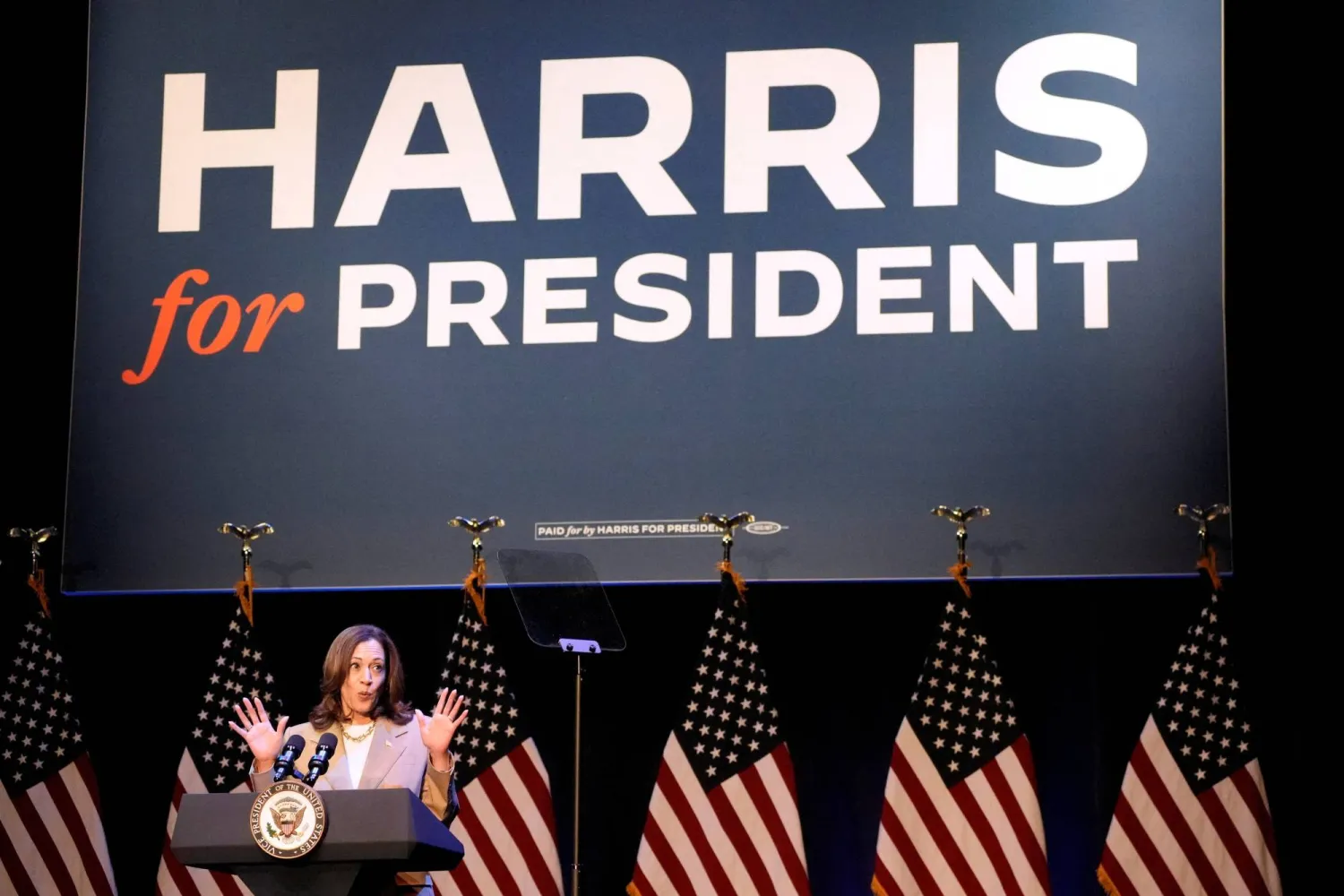US Vice President Kamala Harris' campaign has raised $200 million since she emerged as the likely Democratic presidential nominee last week, an eyepopping haul in her race against the Republican nominee, former President Donald Trump.
The campaign, which announced its latest fundraising total on Sunday, said the bulk of the donations — 66% — comes from first-time contributors in the 2024 election cycle and were made after President Joe Biden announced his exit from the race and endorsed Harris.
Over 170,000 volunteers have also signed up to help the Harris campaign with phone banking, canvassing and other get-out-the-vote efforts. Election Day is 100 days away.
“The momentum and energy for Vice President Harris is real — and so are the fundamentals of this race: this election will be very close and decided by a small number of voters in just a few states,” Michael Tyler, the campaign's communications director, wrote in a memo.
Harris campaigned in Pittsfield, Massachusetts, on Saturday, drawing hundreds to a fundraiser that had been organized when Biden was still at the top of the Democratic ticket. The fundraiser had originally been expected to raise $400,000 but ended bringing in about $1.4 million, according to the campaign.
Harris quickly coalesced Democratic support after Biden, whose candidacy fizzled following his disastrous June 27 debate performance against Trump, exited the race. Former House Speaker Nancy Pelosi, Senate Majority Leader Chuck Schumer, House Democratic Leader Hakeem Jeffries, former House Minority Whip Jim Clyburn, former President Bill Clinton and former Secretary of State Hillary Clinton were quick to announce their support.
Prodigious Democratic fundraisers former President Barack Obama and his wife Michelle Obama announced their endorsement on Friday.
Harris at her Saturday fundraiser said she remained the “underdog” in the race but that her campaign was picking up steam.
A New York Times/Siena College national poll published Thursday found Harris has narrowed what had been a sizable Trump lead while Trump had a two percentage point lead over her in a Wall Street Journal poll published on Friday. A Reuters/Ipsos poll published on July 23 showed a two point lead for Harris.
Mitch Landrieu, a campaign co-chair, said on MSNBC that Harris "had one of the best weeks that we've seen in politics in the last 50 years".
"This is going to be a very close race," he said.









